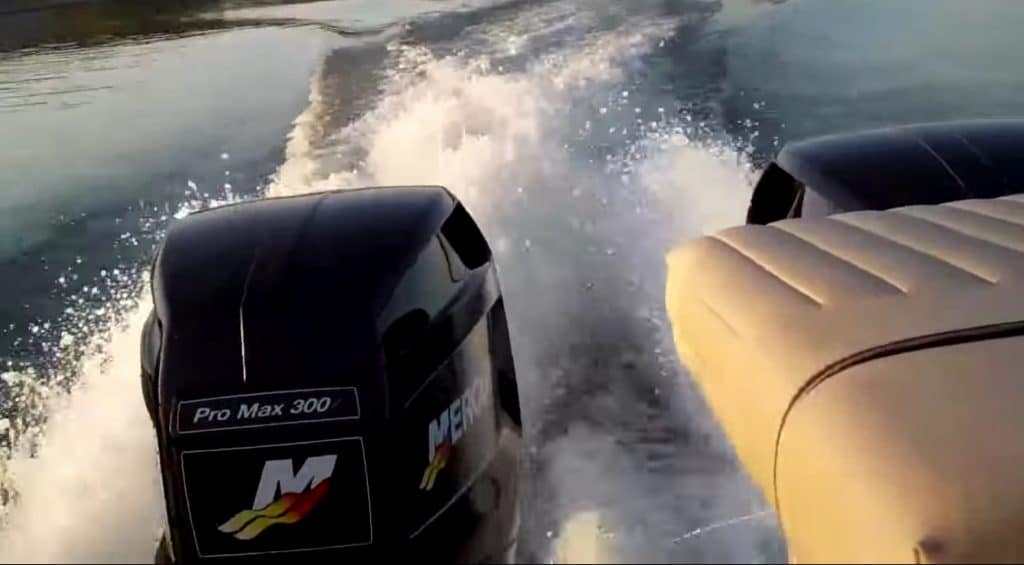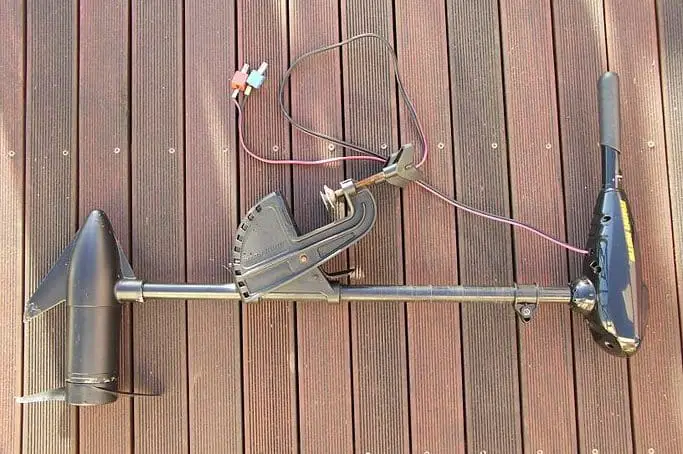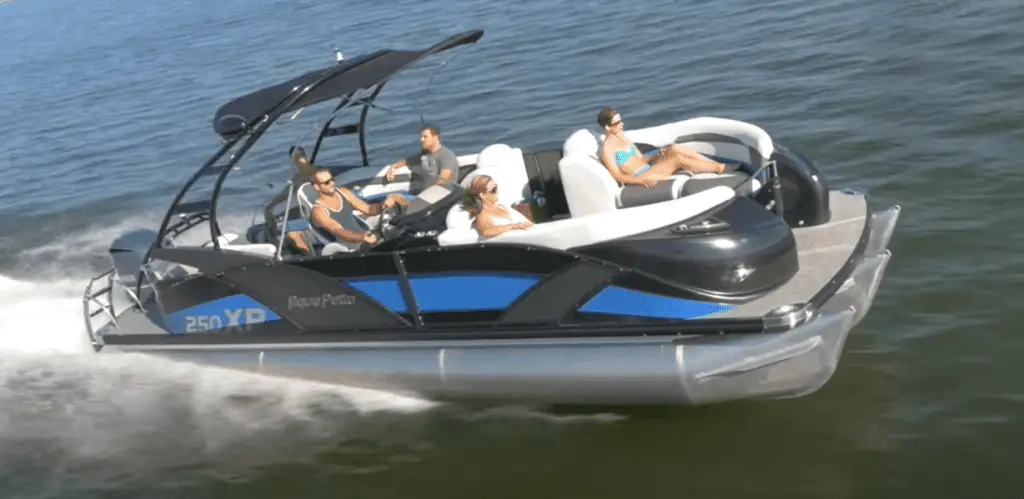Buying your first pontoon boat or upgrading from the one that you already have requires some careful consideration. You’ll need to determine if you want a boat for sporting, fishing, partying, or a mixture of all three. You’ll also need to look at important features, like luxurious amenities, performance, space, and furniture options, just to name a few.
Once you’ve determined why you want to buy a pontoon boat, you can then start thinking about what type of engine you need. This is an important thing to consider before you start saving for your boat, because a large portion of the price is going to be spent on the engine.
In this article, I’ll cover the importance of engine performance and answer the question you may have been wondering: where can you find the maximum horsepower for your boat?
Understanding the Importance of Horsepower
Pontoon boats are not vessels that were designed to cut across the water at lightning-fast speeds. In fact, pontoon boats generally work better as cruising vessels that can be used for light fishing and friendly get-togethers. This is why your run-of-the-mill pontoon boat isn’t the best choice for waterskiing and wakeboarding.
However, when you equip your pontoon with a powerful engine, you can transform it into a sporty boat. Granted, it’ll never have the same feel as some of the sleeker, more aerodynamic boats on the water. With that said, adding a strong engine to your pontoon is perfect if you plan using the boat for watersports or transporting a large number of people.
This is where horsepower comes in
Horsepower is the unit of measurement that we use to determine the power of an engine. As you probably know, the higher your engine’s horsepower, the stronger it is. In theory, the more horsepower your pontoon boat’s engine is putting out, the faster it goes. This is kind of true, but not completely.
Choosing the right engine for your pontoon boat isn’t about picking the one with the highest horsepower. If you do that and don’t have a good understanding of what your boat’s actually capable of, you’ll be spending a lot of extra money on absolutely nothing.
What do you mean absolutely nothing?
Consider the following: would you rather buy a 90-hp engine for your twin-tube pontoon boat that cruises at a speed of 14 mph? Or, would you rather save a lot of money by equipping it with a smaller, 60-hp engine that cruises at 13 mph?
In this example, you’ll be spending a lot more money on a bigger engine that only boosts your speed by one mile-per-hour.
If that’s not enough to make you rethink your engine choice, think about this: the 90-hp engine guzzles a lot more gas than the smaller version. Gasoline is expensive, and choosing the larger engine will end up costing you a lot more money down the line – for one mile-per-hour!
For this reason, it’s important that you actually know what your boat can and can’t do before you upgrade to the biggest engine. The best people to answer those kinds of questions are the friendly representatives who work for your pontoon’s manufacturer. So, be sure to think about that and your pontoon’s horsepower limit before pulling that trigger.
There’s a horsepower limit?
Simply put, not all boats are created equally. Some pontoons are known for being sturdy and durable, while others may have weak points in their structure. To safely ensure that your pontoon isn’t pushed well beyond its limits, manufacturers give each model a horsepower limit. This lets you know what your pontoon is exactly capable of, and that you’re compromising your safety if you give your boat more power than it can support.
It’s important to remember that your boat’s horsepower limit isn’t some recommendation that you can choose to ignore. You’re required to abide by your boat’s horsepower restrictions. At some point during your boating outings, you will run into a police officer or coast guard who inspects your pontoon; one of the things they’ll check for is if your boat isn’t overpowered.
Don’t take any chances. If you want a powerful pontoon, spend the extra money on a sports model that can handle high horsepower.
What would happen if I use an engine stronger than my horsepower limit?
Assuming you weren’t heavily penalized by law enforcement, a lot. Your pontoon boat isn’t designed the same way that a powerful speedboat is, so it’s not going to be able to handle making a turn with an overpowered engine and will likely capsize.
Additionally, it’ll create unnecessary stress on the bottom of your boat and can even flip your boat over. If that’s not scary enough, did you know that an overpowered boat engine can even rip itself off your boat?
Spare yourself expensive repairs and avoidable trips to the emergency room by following your pontoon’s safety regulations.
More on Your Pontoon’s Horsepower
Pontoon boats are given a maximum horsepower rating for a reason, and it’s not always because the manufacturers don’t design specific pontoons strong enough. For example, it’s not uncommon for pontoon boats designed for anglers to have a maximum horsepower between 40 to 80hp. This is because that fishing boats with powerful engines are more likely to scare away nearby schools of fish
Is bigger always better?
If you’re shopping around for a speedboat engine, more power is probably a good thing. As I mentioned in the previous paragraph, this isn’t always the case for pontoon boats, so you really need to think about why you want a powerful engine. Are you unsure if maxing out your pontoon’s horsepower is the right idea? Let me recap some of the things covered earlier in the article:
- Powerful engines are great for watersports to a degree, and after that it becomes overkill. Nobody wants to experience a wipeout at 25 or more miles-per-hour.
- The best speed for tubing and wakeboarding is between 20 to 22 mph. This can be easily obtained with a 90hp engine.
- People who like to spend the day cruising and lounging on the water don’t need a lot of power, especially if the pontoon is primarily used for smaller waterways.
- Weight slows boats down and people are heavy. Those large luxury pontoons that accommodate 15 people need more horsepower to move across the water.
- Taking the engine upgrade when buying your pontoon can set you back more than $1,000 and may only give you one or two extra miles-per-hour.
How do I know my maximum HP?
If you’re planning on buying your pontoon boat from a licensed dealer, the boat’s maximum HP limit should be advertised with the boat. Simple enough, right? Unfortunately, if you buy a second-hand pontoon boat, you probably won’t know the vessel’s maximum horsepower capacity.
In that case, you’ll need to do the following calculation to find your pontoon’s HP:
- Multiply the volume of the pontoons in cubic feet by the longest pontoon length in feet.
- Divide that by the pontoon diameter in inches.
RECAP: pontoon volume (ft^3) X pontoon length (ft.) ÷ diameter (in)
The result you get is your maximum HP. You’re free to round your result to the next five if possible. Also, if you use twin engines, the maximum HP is for both engines combined, not each engine.
If this seems too complicated, you can also contact the boat’s manufacturer or a nearby boating dealership. They’ll be happy to help.
Let’s Look at Some Boats
You already know that pontoon boats come in many different shapes and sizes. Some are small and functional, while others are massive and equipped with impressive performance packages.
Here are a few examples of pontoon boats with varying horsepower ratings:
1. The Suncatcher 22’ V22RF
A great mid-sized pontoon boat that has a 115 horsepower limit. With roughly six passengers, this boat can reach a top speed of 25mph, making it perfect for tubing or cruising.
If you take the same boat and give it a 90hp engine, its maximum speed drops to 22mph when carrying the same number of people. While not as optimal for tubing with a full load, the V22RF then becomes more functional for fishing.
2. The Bennington 2372 RCW Windscreen Sport Arch
This 25’6” pontoon can withstand a maximum 300 HP, making it perfect for engaging in watersports while having a full load of passengers. Although, unless this boat’s being sailed on huge bodies of water, I’m not sure why it needs so much power!
3. The Avalon 14’ Eagle Quad Fish
This is a small, compact boat that can only carry five people. Additionally, fishing boats must have a weaker engine that doesn’t cause enough ruckus to scare away nearby fish. That’s why this pontoon supports a maximum 40hp. While great for a fishing vessel, the Avalon 14’ Eagle Quad Fish would be terrible for tubing and wakeboarding.
The Final Say
Most pontoon boats are designed to serve a specific purpose, which is why they have the maximum horsepower rating that they do. Fitting your boat with the strongest engine possible won’t do much for you if you’re using the pontoon for cruising and fishing. Doing this will only cost you more in the long run as you’re required to spend more on gasoline.
Furthermore, your horsepower limit is there for a reason. If you ignore this, you run the risk of endangering yourself and those around you, as well as experiencing legal troubles if caught.





